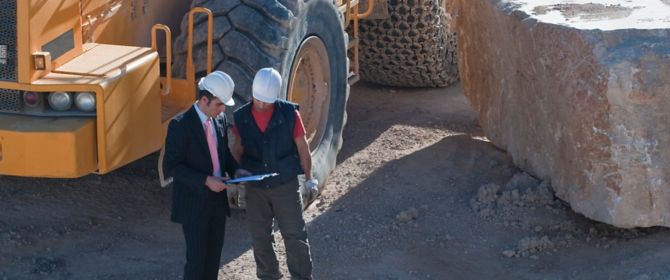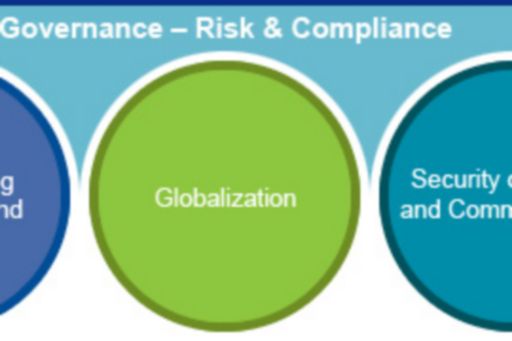Performance – Operational Excellence
Performance – Operational Excellence
The page explains the ENR Industry Issues and Solutions re: Performance – Operational Excellence.
ENR Industry Issues and Solutions re: Performance – Operational Excellence.
Performance – Risk of Inadequate Infrastructure
Rising demand for energy has created the need for major new investments in energy infrastructure. The IEA has stressed the need to invest about US$33 trillion in energy supply infrastructure over 2011–35. A significant portion of this investment will flow to oil and gas, liquid natural gas, and shale gas opportunities
Most OECD countries face challenges in replenishing their aging infrastructure, while the non-OECD countries need new investments to cater to rising energy demands. For example, UK Energy Secretary Chris Huhne said that the United Kingdom’s energy infrastructure, from aging power stations to an outdated grid, requires an investment of about GBP200 billion (US$319.4 billion) by 2020.
KPMG’s ENR Tax Services & Solutions – Managing Major Capital Expenditure Projects and Energy Investments
KPMG firms can assist with both local and international debt-to-equity requirements and characterization. We can also help finalize principal payments, interest expenses and cash flow implications of debt and deemed debt obligations.
We can help with related-party and cross-border transactions, provide indemnity clauses and default provisions or provide opinions and assist with filing requirements. We can also help you prepare your tax documentation, set up internal controls, conduct personnel and process interviews and identify opportunities as a result of our assessments.
We understand that the world needs adequate infrastructure to optimize the global energy mix and build a sustainable future. Our firms’ industry knowledge allows us to navigate taxes on conventional resource as well as taxes and incentives for unconventional and renewable resources and related infrastructure—for shale gas, tar sands, coal seam gas, wind, solar, biomass, biofuels, geothermal and hydropower sources—as well as incentives for increased energy efficiencies, smart-grid technologies, and carbon capture and storage technologies.
KPMG’s Global ENR Tax network includes professionals who specialize in these tax practice areas:
- Financial Services tax
- Global Indirect Tax
- Global Transfer Pricing Services
- International Corporate Tax
Performance – Improving performance and managing operational efficiency
In the first half of 2011, major oil and gas companies witnessed an increase in profits driven by high oil prices. Now, economic growth in the United States and Europe remains uncertain, and the IES forecasts that China’s demand for oil could drop due to an expected slowdown in country's economy.
Companies need to find new ways to improve profitability, particularly as the industry continues shifting to higher-cost initiatives (such as deep-water exploration). With the prospect of slower growth, companies are adopting various practices to reduce their operational costs, for example, by:
- Making significant investments in Enterprise Resource Planning (ERP) and other platforms to cut costs and increase operational excellence
- Improving decision-making and performance transparency via reporting tools, key performance indicator (KPI) development, reporting redesign, and master reference data improvement
- Moving jobs and processes to lower-cost zones, centralizing activities, and creating centers of excellence.
KPMG’s ENR Tax Services & Solutions – Managing a Global Tax Function
KPMG firms can help you manage your company’s global tax function. Our firms’ international network of global and regional tax centers and specialists enables us to provide international tax structuring advice and compliance services specific to major energy investments, capital expenditure projects, joint ventures and operational excellence in the ENR industry.
KPMG’s Tax Efficient Supply Chain Management (TESCM) practice can help ENR companies optimize their multinational operations. We can also help you efficiently manage a supply chain that involves many cross-border and inter-company transactions, for example, by:
- Centralizing procurement, manufacturing, (offshore) services, trading and/or sales
- Driving value from intangible assets
- Restructuring equipment leasing portfolios
- Planning for post-M&A structuring
KPMG’s Global Compliance Management Services team can help your ENR company meet increasing global and local regulatory and tax filing requirements, using technology and tools to offer improved insight in compliance processes, deadlines, and assessments.
KPMG’s International Executive Services team can help your ENR company manage its employee and employer tax and immigration obligations. We can also advise on global HR and compensation practices to improve the global mobility of skilled employees.
KPMG’s Global ENR Tax network includes professionals who specialize in these tax practice areas:
- Global Compliance Management Services
- Global Indirect Tax
- Global Transfer Pricing Services
- International Corporate Tax
- International Executive Services
Performance – Trading: Energy and Emissions
Energy trading involves the sale of electricity to end-users (wholesale or retail) through market traders who generate electricity themselves or buy electricity from generators. This trading faces increasing regulatory pressure. The European Commission (EC) plans to force energy traders to comply with stricter post-trade transparency and reporting requirements. The United States intends to require all energy trading facilities to register with the Commodity Futures Trading Commission (CFTC) and comply with the same standards that apply to regulated futures exchanges.
Carbon trading is a method employed to help reduce harmful emissions. These market-based alternatives involve either direct taxation or a “command-and-control” approach. According to the World Bank, the global market in carbon trading tripled to US$30 billion in 2006. Of this, US$25 billion were derived from the sale of allowances under the EU's trading scheme. The remainder arose from carbon offset projects under the Kyoto agreement, which allowed companies and countries to invest in emission reduction schemes in developing economies.
The EU scheme was criticized for overly generous allowances, which caused the carbon price to decline and offered little incentive to cut emissions. As a result, for the second phase (2008–12), allocations were tightened and the model could become the center of future global carbon trading. Other carbon trading centers exist in the United States, and new ones are emerging in the Middle East.
KPMG’s ENR Tax Services & Solutions – Energy Trading and Emissions
KPMG firms can help ENR companies optimize their multinational operations and supply chains that involve many cross-border and inter-company transactions, for example, by centralizing procurement, manufacturing, (offshore) services, and trading or sales.
KPMG can help you to engage the green agenda and review your regulatory and sustainability business strategies and energy and emissions trading objectives. Our firms can provide tax characteristics of carbon credits, resolve Clean Development Mechanism issues, and define implications of Certified Emission Reduction forward contracts from trading and transfer pricing standpoints.
KPMG’s Global ENR Tax network includes professionals who specialize in these tax practice areas:
Connect with us
- Find office locations kpmg.findOfficeLocations
- kpmg.emailUs
- Social media @ KPMG kpmg.socialMedia
Stay up to date with what matters to you
Gain access to personalized content based on your interests by signing up today



